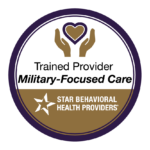Coping with Kidney Disease - Mental Health Therapy in Scottsdale
“Walking with a friend in the dark is better than walking alone in the light.” ~ Helen Keller
Supporting Your Mental Health After a Kidney Disease Diagnosis
Receiving a kidney disease diagnosis can feel life-altering. CKD (Chronic Kidney Disease) is typically a progressive disease that some call a silent disease. Symptoms usually can’t be seen or noticed by others or oftentimes even the patient until progression has already begun. The sneakiness of CKD leaves many with a mix of emotions—fear, frustration, confusion, or even grief for the life they envisioned.
At MUV Counseling, we specialize in supporting individuals coping with a new kidney disease diagnosis. Our goal is to help you prioritize your mental health so that you can also focus on your physical health and develop coping strategies for a better, happier life.
Where to Start with a New Kidney Disease Diagnosis

A kidney disease diagnosis comes with a lot of information, along with a lot of doctor appointments, new feelings – physical, mental, and emotional, and a whole new task list. It’s important to take steps that help you maintain both physical and emotional well-being.
Here are some practical steps to prioritize your mental health:
- Get organized. Even if being an organized person isn’t your thing, now is the time to fake it until you make it. You’ll want folders for things like:
-
- Doctor appointments
- Health insurance and billing information
- Lab work and test results
- Medication lists
- Treatment records
- Articles and research
- Legal documents
- Important phone numbers/contact information
- Learn About Kidney Disease. We would usually discourage you from turning to “Dr. Google”. But now that you’ve received your diagnosis, educating yourself about kidney disease can be empowering and can help you better understand your symptoms and treatment options.
- Build a Support Network. Connect with loved ones and consider joining kidney disease support group to share experiences and find understanding.
- Adopt a Self-Care Routine – This one might be a no-brainer, especially if you’re on a therapist’s website. But be intentional about focusing on things you enjoy that are also stress-relieving practices like mindfulness, yoga, or reading a book.
- Communicate Openly with Your Healthcare Providers – Advocate for your needs and address any physical or emotional symptoms with your care team.
- Eat healthy. Talk to your doctor about your current diet and see if there are any changes you should begin integrating. Getting those daily nutrients from fruits and vegetables just became a bit more important for your body.
- Stay Active. Regular exercise is a great way to maintain healthy blood pressure and cholesterol levels, maintain a healthy weight, stave off depression, and build strength.
- Talk to a therapist when you need to. Talking to a therapist is a great way to find support for your CKD diagnosis outside of your everyday circle. Keep reading to see how we can help.
Counseling can help.
Therapy offers a supportive, nonjudgmental environment where you can talk things out and process the emotions tied to your diagnosis while addressing fears about the future or concerns related to managing your condition. It helps you develop practical coping mechanisms to handle stress, anxiety, or depression effectively. Additionally, counseling provides tools to improve communication with loved ones and healthcare providers, ensuring your needs are understood and met. The goal of therapy goes beyond just sorting through your feelings and offering a sounding board on a tough day. We want to help you to build confidence and cultivate a positive outlook as you navigate your new normal.
Kidney Disease & Your Mental Health
A CKD diagnosis impacts more than just the body. As a silent disease, many individuals face mental health challenges as well that others won’t readily recognize. These are all normal but should be addressed if you feel them taking over your life.
- Depression – Persistent sadness or a loss of interest in activities.
- Anxiety – Constant worry about health outcomes or treatment decisions.
- Guilt – Feeling like a burden to loved ones or struggling with the need to ask for help.
- Frustration – Struggling with physical limitations and lifestyle adjustments.
- Identity Challenges – Adjusting to changes in your daily life or sense of self due to your diagnosis.
- Fear of the Unknown – Worrying about the progression of the disease or treatment side effects.
- Cognitive Impacts – Difficulty concentrating or remembering tasks, often referred to as “brain fog”.
- Identity Challenges – Adjusting to a new sense of self after the diagnosis.
- Intrusive Thoughts – Repeated, unwanted thoughts about the condition or its implications.

How Can Therapy Help When Diagnosed with Kidney Disease?
Living with kidney disease often involves managing uncertainties about treatments, lifestyle changes, and how it will affect your daily life. Our counseling services are designed to support you through this transition. Cognitive Behavioral Therapy (CBT) can help you reframe unhelpful thoughts, such as fears about your ability to cope, and develop healthier behaviors. Acceptance and Commitment Therapy (ACT) encourages you to focus on what truly matters, helping you take meaningful actions aligned with your values. Narrative Therapy allows you to explore your story, make sense of your experiences, and find renewed purpose as you adapt to life with kidney disease.
Types of Therapy for Kidney Disease Support in Scottsdale
Cognitive behavioral therapy (CBT)
- Helps identify and challenge negative thought patterns, such as catastrophizing or self-blame.
- Offers practical techniques to manage stress and improve problem-solving skills.
- Reduces the impact of unhelpful thinking on emotions and behaviors.
Acceptance and commitment therapy (ACT)
- Promotes acceptance of the realities of living with kidney disease while encouraging value-driven actions.
- Strengthens mindfulness skills to help you focus on the present moment rather than fears of the future.
- Enhances psychological flexibility, empowering you to adapt to challenges with resilience.
Narrative/Life Story Therapy
- Helps you reframe your life story, viewing your diagnosis as one chapter rather than the whole book.
- Encourages separating kidney disease from your identity, empowering you to reclaim your sense of self.
- Builds a narrative of strength, focusing on your abilities, values, and goals.
For more details about therapy for a new kidney disease diagnosis in Scottsdale, call us at 480-300-2635 for a free 15 minute consultation or email us with your questions. If you’re ready to get started, schedule online here.




